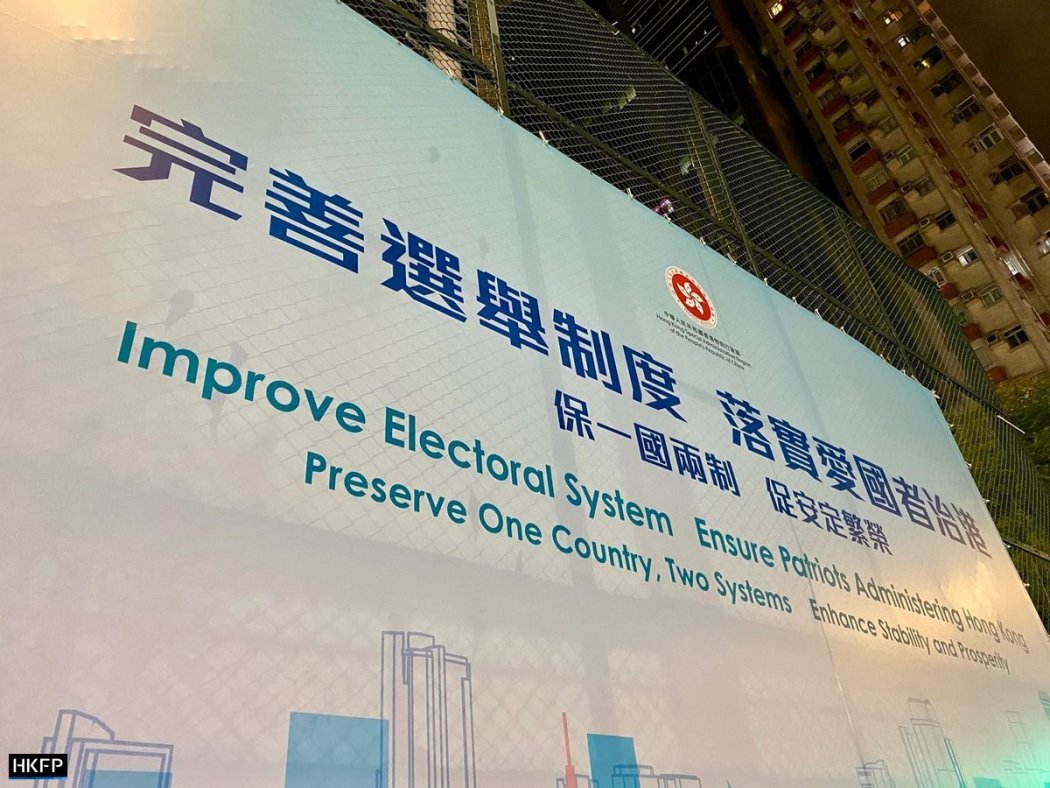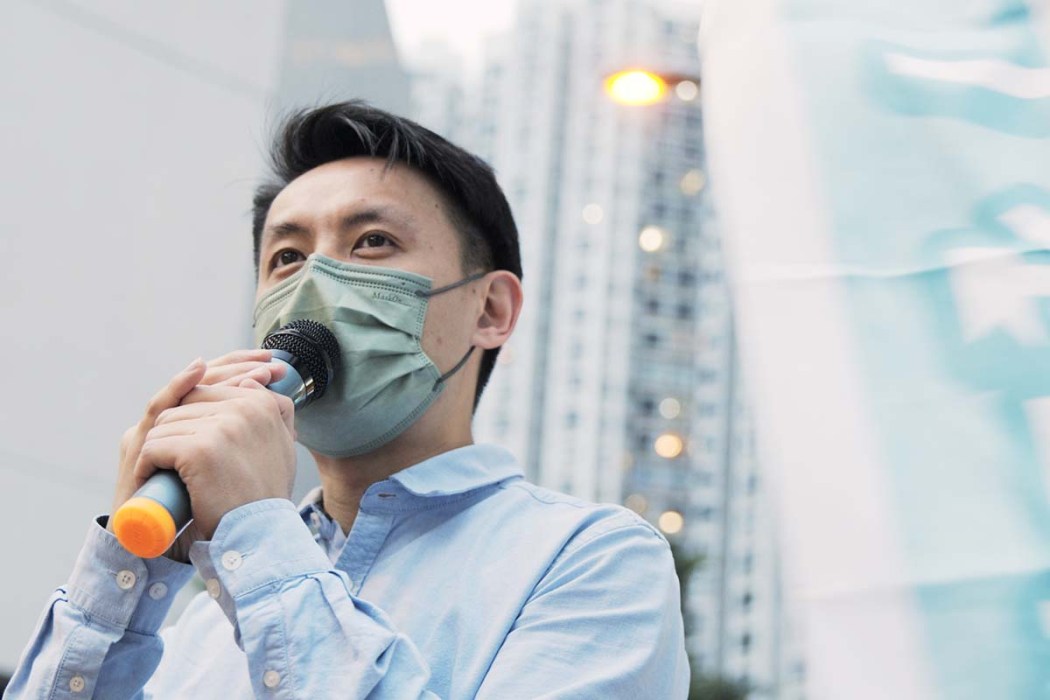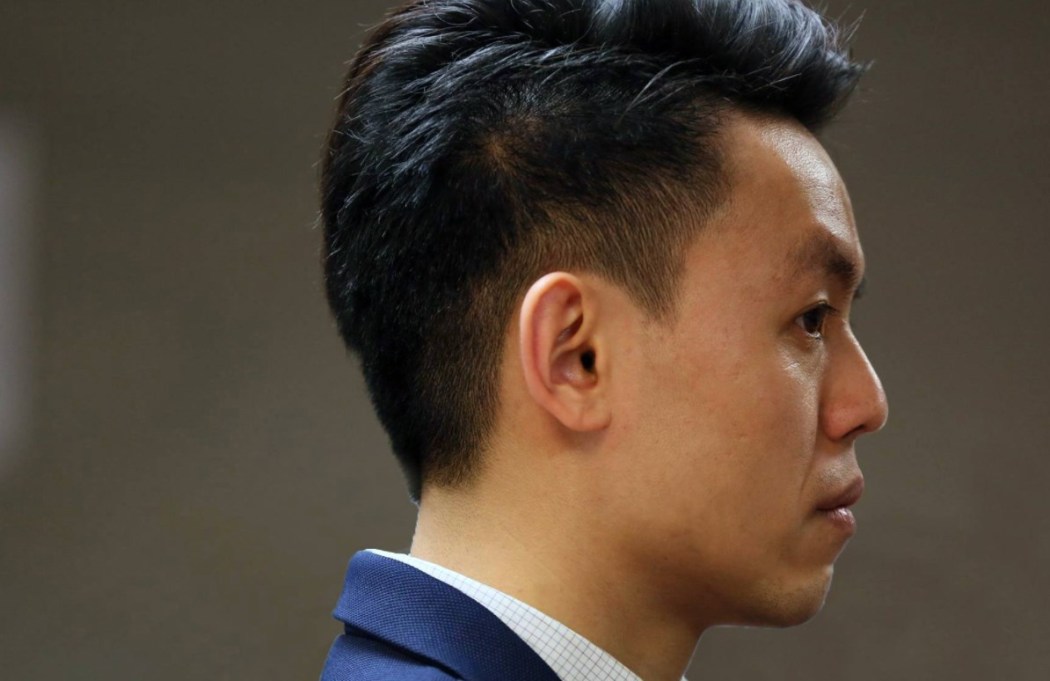When Lo Kin-hei entered politics as a fresh graduate in 2006, Hong Kong was a very different place. Back then, the bread-and-butter issues of how to address the city’s growing poverty gap and the host of social problems it produced were front and centre of his political thinking. Fast-forward 15 years and the leader of Hong Kong’s Democratic Party is more likely to have prison on his mind.
With a growing number of his party colleagues behind bars and many more facing that possibility – including Lo himself – a significant part of his recent daily political activity has been a prison visit to colleagues and friends in the city’s largest opposition party.
Right now, as fellow party officials take their turn to visit the growing number of political activists locked up in the city’s jails, Lo has told HKFP he spends most of his time thinking about the future of the party, while balancing his position as its chair with that of being a district councillor in the city’s Southern District.
Watershed moment
This is a watershed moment for the Democratic Party. They have to decide whether or not to take part in future elections after a Beijing-inspired government overhaul of the city’s electoral systems.

In March, the National People’s Congress Standing Committee passed a resolution to revamp Hong Kong’s Legislative Council and Chief Executive elections to ensure that “patriots” govern the city.
Under the proposed changes, democratic representation in the legislature is reduced, as the number of seats directly elected dropped from 35 to 20, while the total number of lawmakers increased from 70 to 90. Candidates who want to run in elections will also be vetted by the police’s national security branch, as well as top government officials. Critics fear it will be near impossible for pro-democracy candidates to stand, let alone win, in future elections.

However, Lo believes reaching a decision over participation in future elections will require a much broader and deeper series of considerations than simply electoral arithmetic and legislative number-crunching.
Soul-searching
Lo said that the debate is not only between members of the party, but was one in which individuals would have to delve deep into their political souls to come up with an answer. For this reason he wants to give party members “all the time” they need to consider all the arguments.
“When you look at history in many different places, no matter if it’s in Taiwan, or in Czechoslovakia, or in Poland, all the opposition parties ran for any elections they have – no matter [if] it is a very fair election, or it is not a fair election,” said Lo.
“One of the reasons for them is that they want to keep up the momentum and they want to keep their voice being heard. I think those historical lessons are something that we should learn from…”
However, Lo is also concerned that participation in future elections could erode people’s trust in the party.

“They [the people] will think: well, you’re being accepted by the central government, and how should I trust you in the future?” he said.
While Lo said that it was not likely they would reach a conclusion until after the Election Committee election, he added that “the opposition should have a voice”.
“If our party finally makes the decision to run for election this term, I think the most important thing for us is that we have to keep our voice there,” said Lo.
“You can’t expect pro-Beijing politicians to speak for Hong Kong people, when there are clashes between Hong Kong and China. We have to keep the opposition voice heard, we have to keep the opposition voice alive, and we can make use of that platform in the Legislative Council. Although it is very much a minority there, it is still a voice there,” he added.
Making a commitment
Lo was elected as chairperson of the Democratic Party in December last year. He is the youngest, and also the first, chair who is not a Legislative Councillor.
“When I actually handed in my nomination form to the party….I have quite some thoughts on that, on whether or not I can participate, or I can handle these burdens, whether or not I am capable of handling all these things that Hong Kong is facing,” he said.
Knowing that Hong Kong’s political environment was deteriorating when he made the decision to run, Lo said that he ultimately realised it was not all about his own abilities.
“I concluded that it’s not only about my personal capability, and it’s not only about how I think about the future. It is about the commitment I have to make.”
Unlike most of his peers, Lo decided to join politics after graduating from the University of Hong Kong in 2006 at the age of 23.
“In 2006, when I graduated from the university, it was really, extremely rare for my generation to get into politics. But at that time I just thought, I was born and raised in Hong Kong, and I saw a lot of problems in Hong Kong,” said Lo, a social worker by profession.

“In a city like Hong Kong, which is so, so, so rich, and where we have so many problems with poverty, housing and social welfare, then there must be something wrong within the system. So, at that time I just thought, rather than taking the case, and helping one people by one people, or one family by one family, why not I try to change the system as a whole?”
Tolerance levels
The district councillor said he could not help but wonder what went wrong after 2008 – a time when Hong Kong people were “so attached emotionally to mainland China and to their status as a Chinese”.
“My answer to that is the tolerance levels of Beijing and the Central government. When they [mainland China] got richer and richer, and when they think they’re more and more powerful and influential in international politics, they show much less tolerance towards the Hong Kong people.”
The 36-year-old was arrested in July last year for allegedly participating in an illegal assembly outside the Hong Kong Polytechnic University in November 2019 when there protesters and police clashed violently and the campus was under siege.
With many of pro-democracy activists and politicians in custody or serving prison terms, and some fleeing the city, Lo said he tries not to think about the possibility that he might be jailed.

Under the Beijing-imposed national security law, subversion, secession, foreign interference and terrorist acts, which were broadly defined to include disruption to public transport and other infrastructure are criminalised.
Many of Lo’s colleagues and party members were charged under the sweeping legislation, as 47 democrats were accused of “conspiring to commit subversion” over their participation in a primary election for the now-postponed Legislative Council election.
“I try not to consider [the prospect of prison] too much, because if I think about the national security law too much, and try to limit myself because of that fear, it would be very very hard for me to keep on speaking,” Lo said.

“I can’t tell how much pressure I can take,” said Lo. “If it’s only for myself, I can take all the pressure, no problem, you can send me to jail for years, it’s alright for me, I am all prepared for that.
“But if it is something related to my family members or other friends of mine, I couldn’t tell you, but I would say, I believe that I can stand some stress over this.”
Support HKFP | Policies & Ethics | Error/typo? | Contact Us | Newsletter | Transparency & Annual Report | Apps
Help safeguard press freedom & keep HKFP free for all readers by supporting our team

LATEST FROM HKFP
HKFP has an impartial stance, transparent funding, and balanced coverage guided by an Ethics Code and Corrections Policy.
Support press freedom & help us surpass 1,000 monthly Patrons: 100% independent, governed by an ethics code & not-for-profit.












